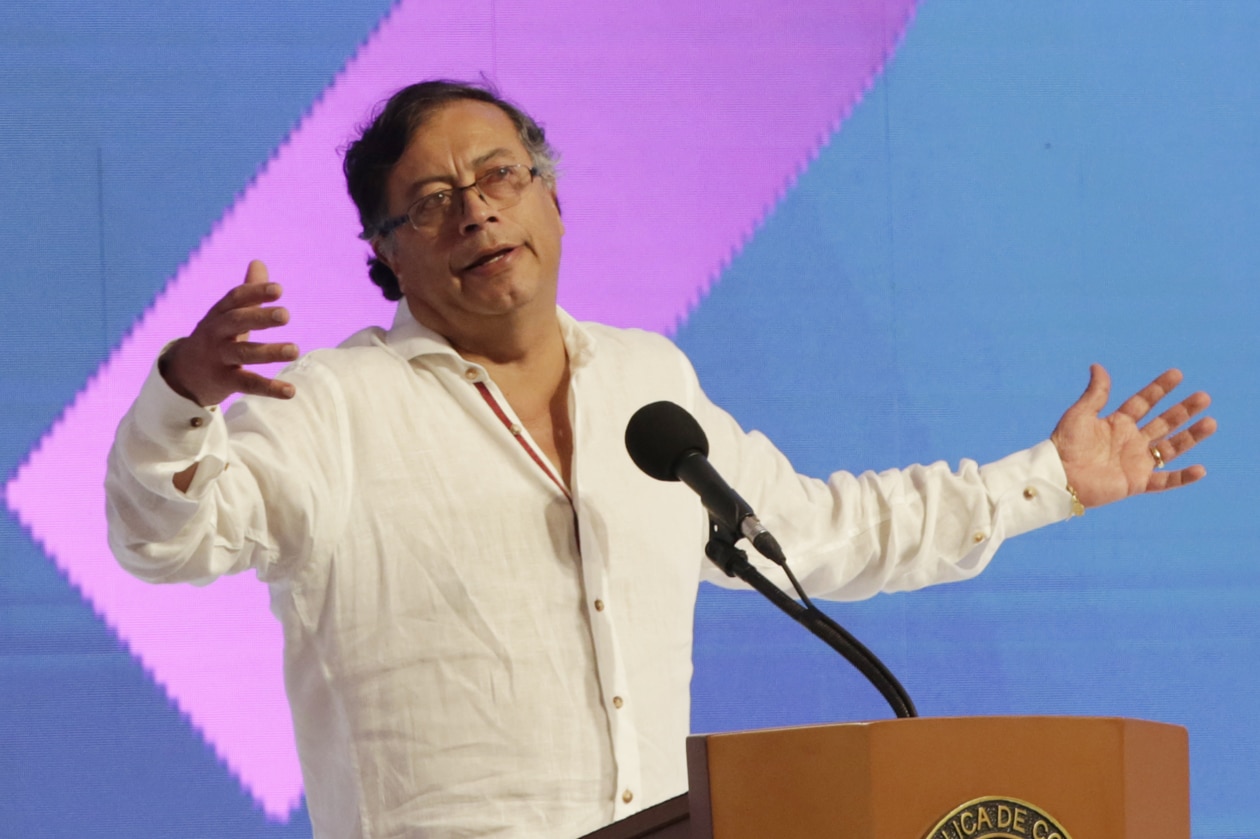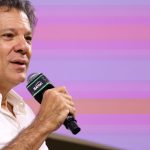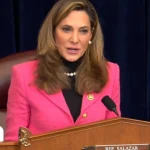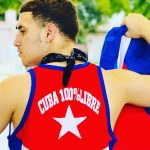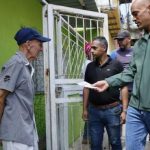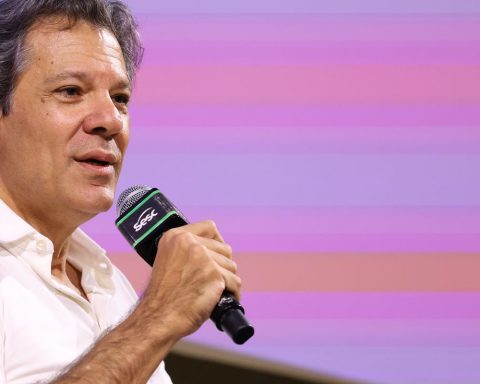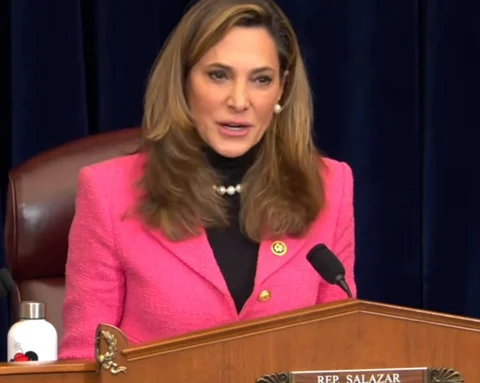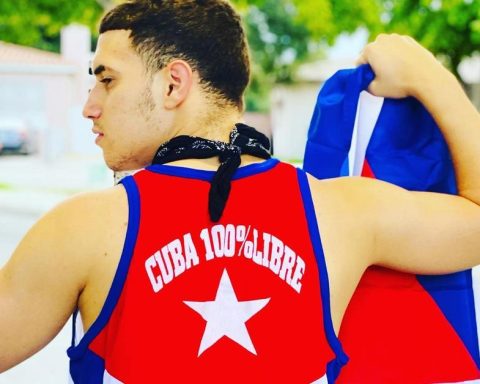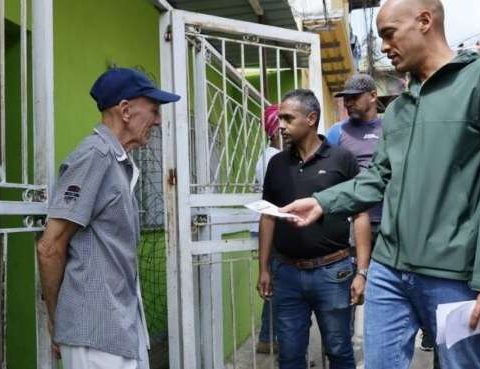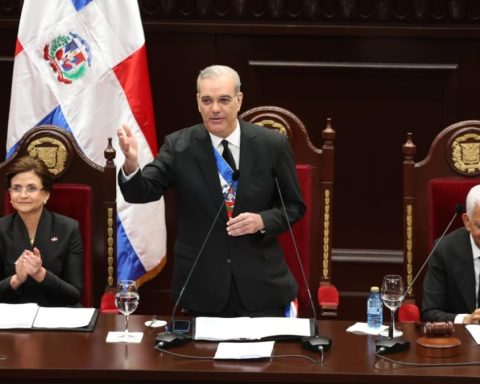An unofficial spokesman for the dictatorship of Daniel Ortega publicly closed the possibility of any negotiation with the president of Colombia, Gustavo Petro, involving the release of at least 14 political prisoners, as Colombian journalist Daniel Coronell revealed in the change magazineand ordered that government to comply with the ruling of the International Court of Justice (ICJ) in The Hague.
William Grigsby Vado affirmed this Monday in his program “Sin Fronteras” on Radio La Primerísima that the negotiation proposed by Petro, using “messengers” whom he did not identify, is that Colombia would recognize the Hague ruling —favorable to Nicaragua since 2012— in exchange for handing over “the tranqueros”, referring to the political prisoners who are in the El Chipote prisons.
“How about? So, no little brother, for God’s sake! Even if they send you Saint Peter as a messenger. First, we are not asking for anything other than that they recognize the ruling of the highest court on the planet,” said Grigsby, known as one of the main propagandists of the Ortega-Murillo regime.
Last Sunday, Coronell published a column under the headline “the price of silence”in which he explained the alleged reasons for the absence of the Petro government in the regional condemnation of the Ortega regime on August 12.
The president of the magazine Cambio revealed that the absence was due to the search for a negotiation of the new Petro Government regarding the ICJ ruling, which allows Colombian fishermen from the Raizales to work in waters adjudicated by the International Court. of Justice to Nicaragua since 2012.
Additionally, Coronell indicated that a “Nicaraguan government source” told him that Colombia is carrying out a humanitarian effort to achieve the release of 14 of 205 prisoners of conscience currently in the hands of the dictatorship.
The columnist mentioned the former presidential candidates Juan Sebastián Chamorro, Medardo Mairena, Miguel Mora and Félix Maradiaga, the journalist Miguel Mendoza, the manager of the newspaper La Prensa Juan Lorenzo Holmann and the Unamos leaders: Dora María Téllez, Suyen Barahona, Támara Dávila and Ana Margarita Vijil, who are in solitary confinement.
Information collected by Coronell indicates that there are “preliminary contacts” that could be made public this week. These have the mediation of Cuba and Pope Francis is informed. “Perhaps that is why his expressions have been prudent,” he justified in relation to the pontiff’s position, criticized for his prolonged silence despite the persecution suffered by the Catholic Church.
Grigsby reiterated that Nicaragua’s sovereignty is out of the question and that the first thing Colombia should do is remove its patrol boats from Nicaraguan waters, and that only after Colombia recognizes the ICJ’s ruling could Nicaragua sign a treaty granting it permits to fishes the raizales to fish in Nicaraguan waters.
Exalts the head of the Army
In his comment, Grigsby praised the recent intervention of the head of the Army, General Julio César Avilés, who said at the 43rd anniversary of the Armed Forces, on September 2, that he would continue to protect Nicaraguan waters.
Avilés, who has stood out for his partisan obedience to Ortega, assured that the Army would defend the sovereignty and independence of Nicaragua before “the stain and shame that traitors represent”without mentioning names either, but unconditionally supporting the regime that carried out a brutal repression against citizens in 2018, causing the murder of at least 355 people.
In 2021, before the presidential elections in which Ortega was re-elected without political competition, more than 40 political, economic and social leaders were arrested, including the group of political prisoners cited by Coronell.
The possible humanitarian negotiation attributed to Petro by the Colombian press occurs when the relatives of Nicaraguan political prisoners have intensified their complaints about the serious physical and emotional consequences caused by the torture to which prisoners of conscience are subjected.
After 400 days of confinement, the dictatorship presented the political prisoners in “informative hearings”. The traces are evident. They find each other aged, pale and emaciated.
So far officially, the Petro Executive has not commented on these possible negotiations with Ortega, but last week a statement from its Foreign Minister Álvaro Leyva recorded a “large-scale humanitarian operation” that it did not reveal, when justified the absence of Colombia in the OAS vote affirming that it was due to “strategic” and “humanitarian” reasons.
“The window of opportunity for major humanitarian action in Nicaragua coincided with the vote that day,” Leyva said, referring to August 12 when 27 OAS countries condemned Ortega for his persecution of the Catholic Church. The foreign minister even said that he hoped that “the leaks” would not have an adverse effect on what was sought in relation to these efforts.
The demands of Nicaragua in the ICJ
For international law specialist Paul Reichler, who served as Nicaragua’s advisor to the ICJ for twenty years until last March, Leyva’s was a “political message, not legal”. “I don’t know if it expresses the true position of Colombia or if it is a mask to hide the true intention,” he added.
The specialist explained that Nicaragua has sued Colombia three times: the first ended with the ICJ’s recognition of Nicaragua’s sovereignty over 75,000 kilometers in the Caribbean Sea in 2012, the second ordered Colombia to leave Nicaraguan waters in April passed and a third is still pending.
According to Reichler, this third international process is about “the delimitation of the maritime border between Nicaragua and Colombia in the area beyond 200 nautical miles from the Caribbean coast of Nicaragua. There have not yet been oral hearings before the Court in that case, and therefore there is no sentence.”
